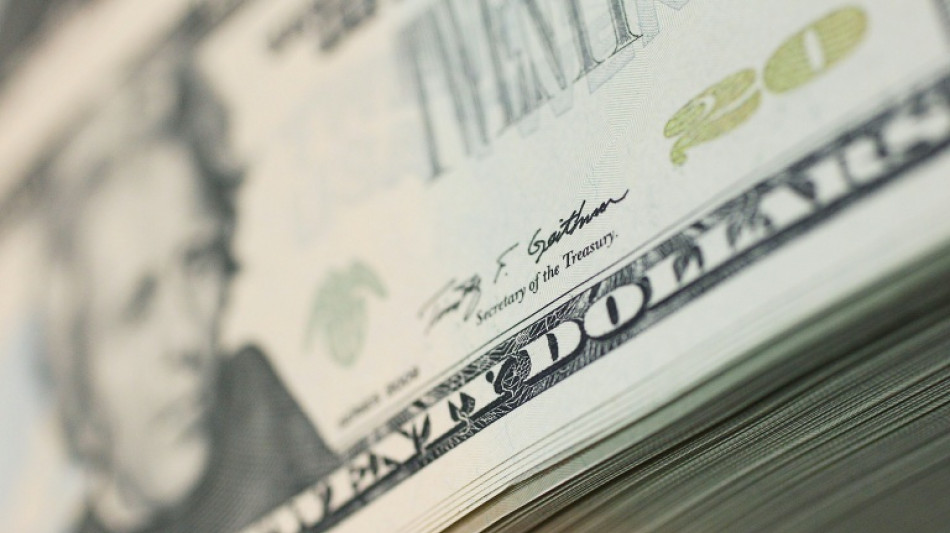
-
 Deadly monsoon rains lash Pakistan, killing dozens
Deadly monsoon rains lash Pakistan, killing dozens
-
Frank urges 'real' Spurs fans to back Tel after racist abuse

-
 Japan's emperor expresses 'deep remorse' 80 years after WWII
Japan's emperor expresses 'deep remorse' 80 years after WWII
-
Chelsea boss Maresca eager to sign new defender as Colwill cover

-
 Liverpool target Isak controls his Newcastle future: Howe
Liverpool target Isak controls his Newcastle future: Howe
-
New-look Liverpool kick off Premier League season after spending spree

-
 Football and falls as first humanoid robot games launch in China
Football and falls as first humanoid robot games launch in China
-
'Like hell': Indoor heat overwhelms Saudi Arabia's cooks, bakers

-
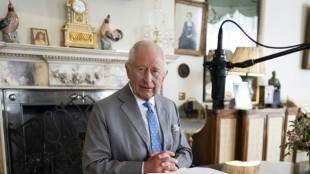 On VJ day, king pays tribute to UK veterans, warns of war's 'true cost'
On VJ day, king pays tribute to UK veterans, warns of war's 'true cost'
-
Stocks mostly higher before US-Russia summit
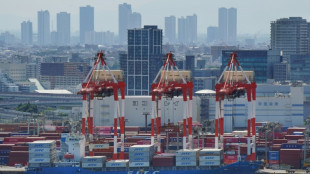
-
 Bayern's Bundesliga crown up for grabs after rocky summer
Bayern's Bundesliga crown up for grabs after rocky summer
-
Arsenal face revamped Man Utd as new-look Liverpool open Premier League season

-
 South Korea president vows to build 'military trust' with North
South Korea president vows to build 'military trust' with North
-
'Never again': Indigenous Bolivians sour on socialism

-
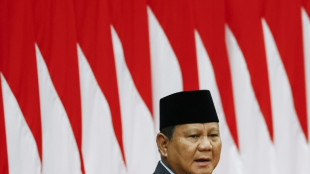 Indonesia's president touts economy, social welfare drive
Indonesia's president touts economy, social welfare drive
-
World plastic pollution treaty talks collapse with no deal

-
 Facing US tariffs, India's Modi vows self-reliance
Facing US tariffs, India's Modi vows self-reliance
-
Trump to meet Putin in high-stakes Alaska summit

-
 Indian rescuers scour debris after 60 killed in flood
Indian rescuers scour debris after 60 killed in flood
-
Ivory Coast village reburies relatives as rising sea engulfs cemetery

-
 Stressed UK teens seek influencers' help for exams success
Stressed UK teens seek influencers' help for exams success
-
National Guard deploys 800 personnel for DC mission, says Pentagon

-
 Japan emperor expresses 'deep remorse' 80 years after WWII
Japan emperor expresses 'deep remorse' 80 years after WWII
-
With waters at 32C, Mediterranean tropicalisation shifts into high gear

-
 Historic Swedish church being moved as giant mine casts growing shadow
Historic Swedish church being moved as giant mine casts growing shadow
-
Malawi's restless youth challenged to vote in September polls

-
 Indonesian roof tilers flex muscles to keep local industry alive
Indonesian roof tilers flex muscles to keep local industry alive
-
World's first humanoid robot games begin in China

-
 Scott Barrett returns to lead All Blacks against Argentina
Scott Barrett returns to lead All Blacks against Argentina
-
Five things to know about Nigeria's oil sector
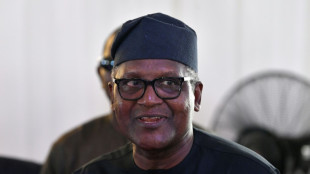
-
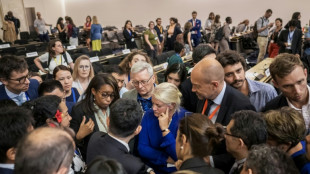 New compromise but still no deal at plastic pollution talks
New compromise but still no deal at plastic pollution talks
-
France's Cernousek seizes lead at LPGA Portland Classic

-
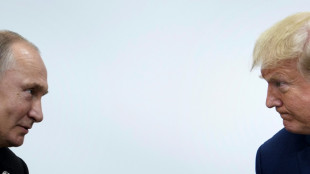 Putin-Trump summit: What each side wants
Putin-Trump summit: What each side wants
-
Desperate Myanmar villagers scavenge for food as hunger bites

-
 Qualifier Atmane stuns Rune to set up Sinner semi-final in Cincinnati
Qualifier Atmane stuns Rune to set up Sinner semi-final in Cincinnati
-
Hong Kong tycoon Jimmy Lai's security trial delayed over health concerns
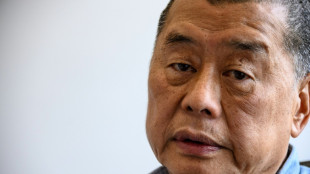
-
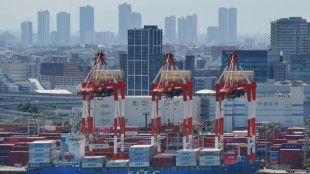 Asia stocks mixed before US-Russia summit
Asia stocks mixed before US-Russia summit
-
Putin hails North Korean troops as 'heroic' in letter to Kim

-
 Fleeing the heat, tourists explore Rome at night, underground
Fleeing the heat, tourists explore Rome at night, underground
-
Online cockfighting thrives in Philippines despite ban and murders

-
 Keeping cool with colours -- Vienna museum paints asphalt to fight heat
Keeping cool with colours -- Vienna museum paints asphalt to fight heat
-
Raising the bar: Nepal's emerging cocktail culture

-
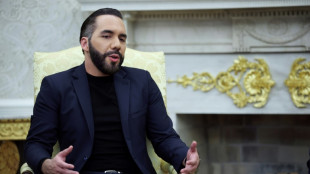 El Salvador plans 600 mass trials for suspected gang members
El Salvador plans 600 mass trials for suspected gang members
-
Trump's tariffs drown Brazil's fish industry

-
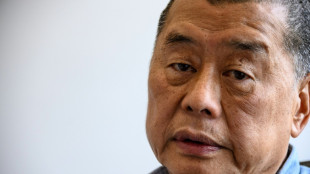 Hong Kong tycoon Jimmy Lai's collusion trial resumes after delay
Hong Kong tycoon Jimmy Lai's collusion trial resumes after delay
-
Britain's Princess Anne turns 75 with typically minimal fuss

-
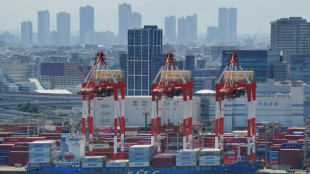 Japan posts modest growth despite US tariffs
Japan posts modest growth despite US tariffs
-
Rugby Championship kicks off amid uncertain future

-
 Israeli far-right minister backs contentious West Bank settlement plan
Israeli far-right minister backs contentious West Bank settlement plan
-
Hot putter carries MacIntyre to three-shot lead at BMW Championship


Asset flight challenges US safe haven status
The US has long been considered a financial safe haven. The sell-off of the dollar, stocks and Treasury bonds in a spree sparked by panic at President Donald Trump's trade war is starting to raise questions about if that's still true.
- What happened this week to US assets? -
US equities and the greenback have been under pressure for weeks. This week, the volatility spread to the US Treasury market, long considered by global investors to be a refuge.
On Wednesday morning before Trump announced he was pausing many of his most onerous tariffs for 90 days, yields on both the 10-year and 30-year US Treasury bonds spiked suddenly.
Trump's pivot -- which sparked a mammoth equity market rally Wednesday afternoon -- also provided temporary relief to the US Treasury market. But yields began rising again on Thursday.
"There's clearly a flight from US bonds," said Steve Sosnick of Interactive Brokers. "That money is flowing out of the US bond market and doing so very quickly."
JPMorgan Chase CEO Jamie Dimon rejected the notion that US Treasuries were no longer a haven, but acknowledged an impact from recent market volatility.
"It does change the nature a little bit from the certainty point of view," Dimon said Friday, while adding that the United States still stands out as safe "in this turbulent world."
- Why are investors fleeing US bonds? -
The most obvious reason is that the near-term outlook on the US economy has deteriorated, with more economists betting on a recession due to tariff-related inflation and a slowdown in business investment amid policy uncertainty.
That's a big shift from just 80 days ago at the World Economic Forum where "everyone talked about US supremacy," BlackRock CEO Larry Fink said Friday.
Analysts also see the reaction as stemming from Trump's policies such as his "America First" agenda that frays ties with other countries and his proposed tax cuts that could mean bigger US deficits.
"Unconventional policies that gamble with a country's public finances and/or its growth outlook can cause bond investors to question the assumption that government debt is risk free," said a note from Berenberg Economics.
"The breakdown in the relationship between US Treasury yields and the dollar highlights the concerns of investors about Donald Trump's policy agenda," Berenberg said.
Analysts have said some of the selling in US Treasuries is likely from equity investors who need to raise cash quickly. There has also been speculation that the Chinese government could liquidate US Treasury holdings in the US-China trade war, although such a move would also badly hit Beijing.
- What will happen next? -
The safe nature of US Treasury bonds is connected to the reserve currency status of the dollar, a feature that allows the United States to operate with much larger fiscal deficits than other countries.
Since Trump's inauguration, the euro has risen 10 percent against the greenback.
Still there is very little talk of a shift in the dollar's status anytime soon. The greenback is the currency in which oil and other global commodities trade. Central banks around the world will continue to hold assets in dollars and US Treasuries.
"There will be scarring impacts from this, but I don't think it's going to dislocate the dollar as the de facto global currency," said Will Compernolle of FHN Financial. "I just don't see any other alternative for now."
BlackRock's Fink remains bullish on the United States long-term, noting planned investments in artificial intelligence and infrastructure that will fuel growth.
Trump policies such as tax cuts and deregulation will "unlock an amazing amount of private capital," predicted Fink, who believes this upbeat future has been "obscured" by tariffs.
Morgan Stanley CEO Ted Pick said corporate deals could soon pick up, viewing Trump's proposed tax cuts and deregulation as catalysts that may allow clients to say "we will go forward."
F.AbuZaid--SF-PST
